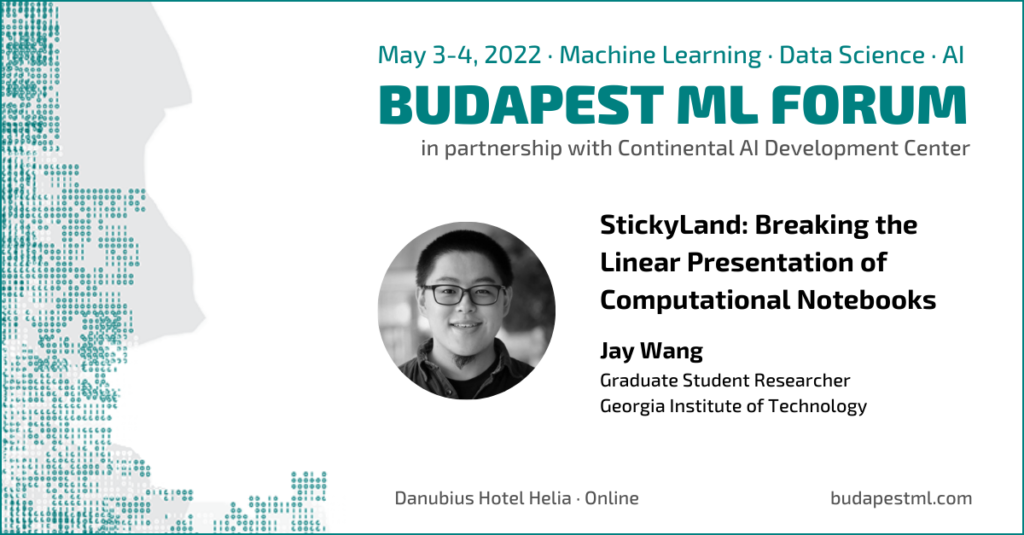StickyLand: Breaking the Linear Presentation of Computational Notebooks
How can we better organize code in computational notebooks? Notebooks have become a popular tool among data scientists, as they seamlessly weave text and code together, supporting users to rapidly iterate and document code experiments. However, it is often challenging to organize code in notebooks, partially because there is a mismatch between the linear presentation of code and the non-linear process of exploratory data analysis. In this talk, we will introduce StickyLand, a notebook extension for empowering users to freely organize their code in non-linear ways. With sticky cells that are always shown on the screen, users can quickly access their notes, instantly observe experiment results, and easily build interactive dashboards that support complex visual analytics.
Jay Wang
Graduate Student Researcher, Georgia Institute of Technology
Jay Wang is a machine learning PhD student at Georgia Tech, working with Professor Polo Chau. Jay’s research focuses on making AI more accessible, interpretable, and accountable, by designing and developing novel interactive interfaces for people to easily and enjoyably interact with machine learning systems at scale. Jay’s hybrid expertise in machine learning and human-computer interaction enables him to harness AI’s potential to benefit everyone. His work has resulted in open-source tools like CNN Explainer (viral with 100k+ visitors) that transforms AI education and GAM Changer (best paper award at Research2Clinics workshop at NeurIPS’21) that empowers users to edit AI models to reflect their knowledge and values.




